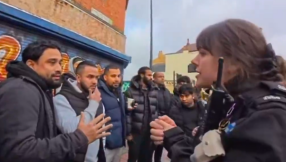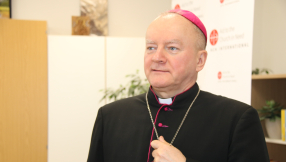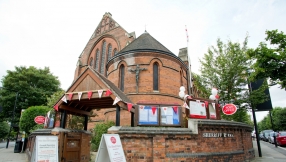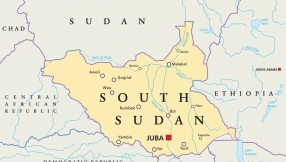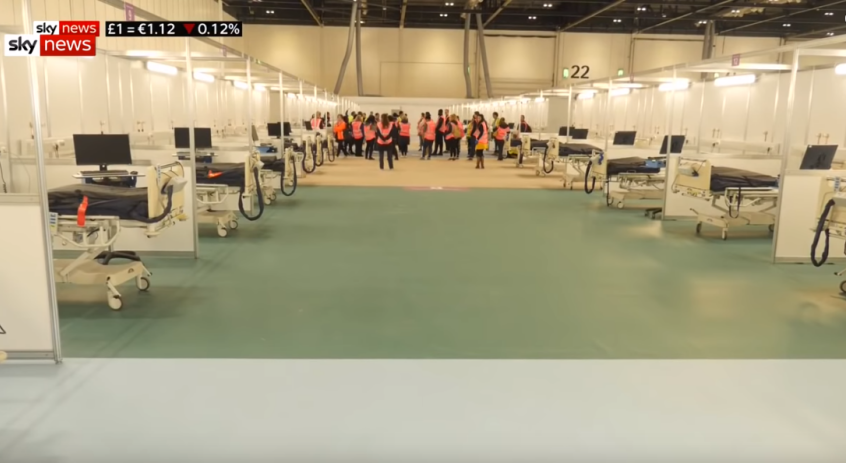
Church of England clergy who have volunteered to serve as temporary chaplains at London hospitals have been advised not to minister directly to coronavirus patients.
The guidance, which has been met with criticism, was issued by the Bishop of Chelmsford, the Rt Rev Stephen Cottrell, after a request for more hands from the lead chaplain at NHS Nightingale, the emergency field hospital set up at London's ExCel Centre.
While a number of clergy have stepped forward to plug the gap in chaplains, they have been told that they can only assist patients digitally or provide pastoral support to NHS staff.
The guidance applies only to temporary volunteer chaplains. Full-time NHS chaplains are permitted to continue ministering face to face.
"The need to maintain extremely strict discipline regarding contact with patients cannot be over emphasised," the bishop wrote.
"This means that direct personal contact between patients in ITU and all chaplains is not possible at the Nightingale Hospitals. This is true of other NHS Trusts, although protocols on non-ITU wards may differ.
"The Church of England supports this approach and, nationally and through the dioceses, should not seek exemptions as we try to model best practice on behalf of the whole community.
"The experience in Newham suggests that much can be done remotely and in support of hospital staff without breaching rigorous distancing protocols."
The guidance was strongly criticised by Rev Marcus Walker, rector at Great St Bartholomew's, London, in a comment in The Times in which he said "clergy must be free to minister to the sick" during the coronavirus crisis.
"When we are ordained, every single priest is told by the bishop ordaining them that 'Priests are called to be servants and shepherds among the people to whom they are sent. They are to minister to the sick and prepare the dying for their death'," he wrote.
"Today we are banned from doing this, not by a hostile government or a suspicious health service but by our own Church.
"I beg the bishops to reverse this decision before we forfeit for ever the right to call ourselves again the national church."
Rev Walker later said on Twitter that it was "with an incredibly heavy heart" that he had aired his concerns publicly.
Bishops in the Dioceses of Chelmsford and London have since issued a joint response standing by the guidance.
"Priests' every instinct is to be alongside those who are sick and dying, to offer prayer, to accompany people through suffering and minister at the time of death," they write.
"However, we who are priests and chaplains also have a duty to prevent infection and so save lives.
"In this context Church of England bishops fully support the duty of NHS professional chaplains to minister face to face to the sick and the dying."
They go on to say that the guidance allows volunteer chaplains to offer "wholehearted support" to staff and relatives of patients, while observing social distancing regulations.
The response continues: "As things currently stand, these additional volunteers cannot assist in face to face patient contact as this would increase the risk of infection transmission within, into, and out of the hospital.
"They can, however, assist in pastoral support of patients via video call on phone or tablet, and in the vitally important task of providing pastoral care to NHS staff.
"This was what was discussed with the lead chaplain earlier this week and it is what we will continue to advise our volunteers, unless otherwise formally requested by the Trust.
"The Chelmsford and London bishops continue to be in regular contact with and to support hospital chaplains in their areas. They are committed to helping them safely increase the capacity to respond pastorally in their health care settings, whilst doing everything they can to reduce infection transmission, to protect the NHS, and to save lives."
Tasha Critchlow, deputy head of chaplaincy at Barts NHS Trust, which covers Nightingale, told The Times that qualified professional volunteers will be given training and personal protective equipment.
David Baker, a vicar in East Sussex, said that the guidance for temporary chaplains was "perplexing" and "concerning".
"Jesus frequently showed direct personal compassion to those who others wouldn't go near - and as Christians we are called to do likewise," he said.










